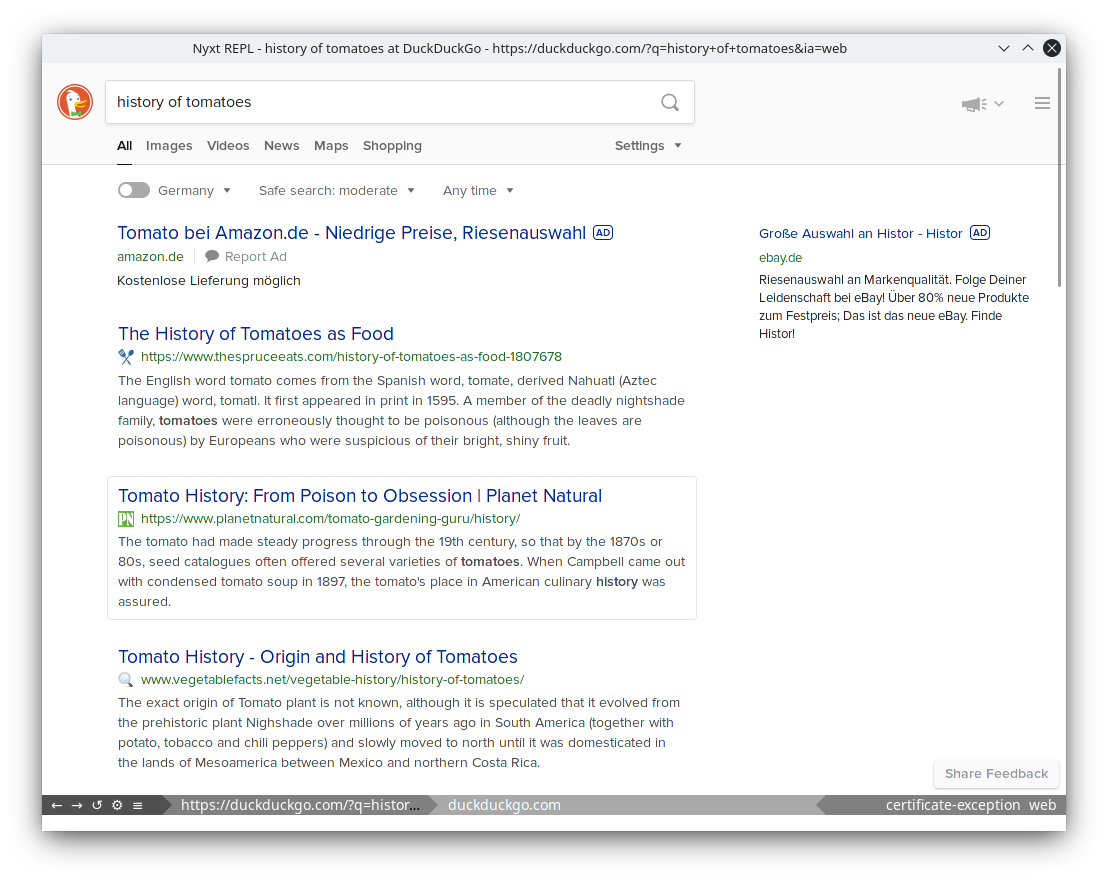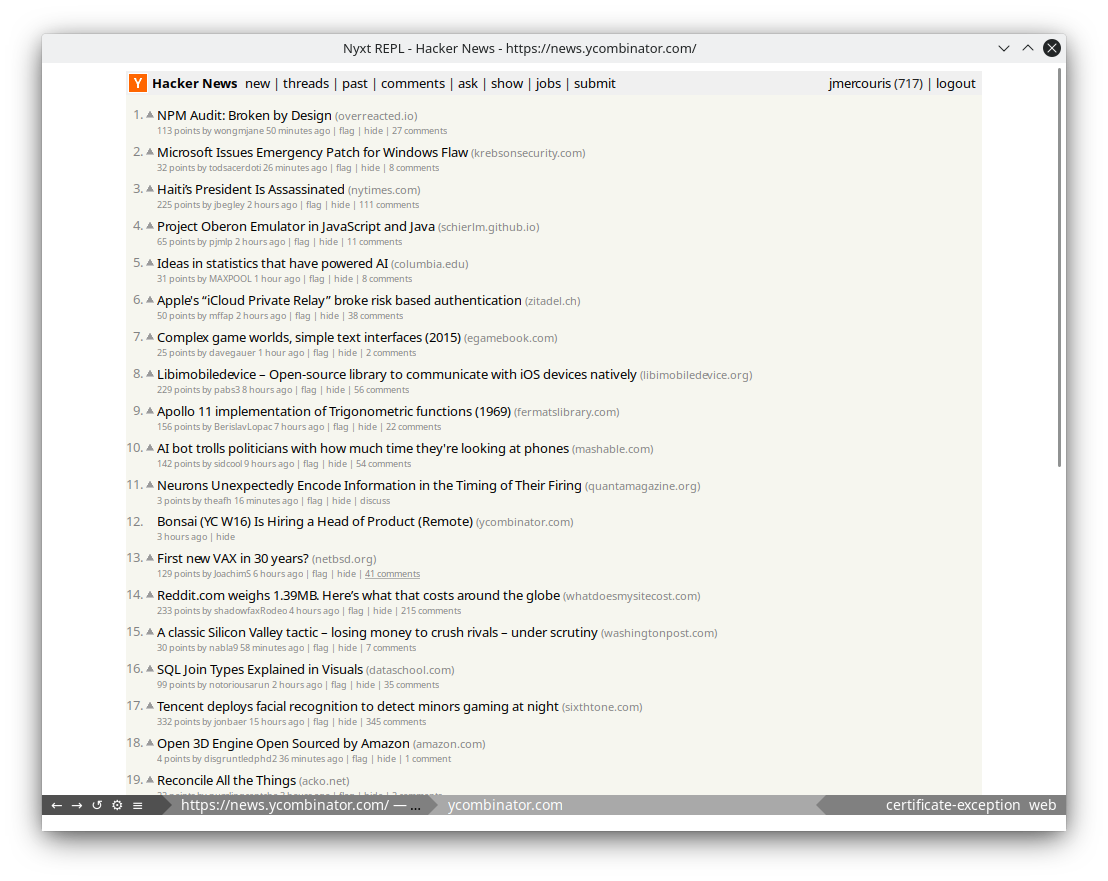2021-07-07, updated: 2024-03-12
Tested with Nyxt 2.2.0.
Select frame: a new model for interaction
Typical interactions with web pages involve a single element. For example, when we view a search result, we visit or open each result one at a time.
This approach does not scale, it is tedious, and prone to misclicks.
Why can't we drag and select multiple objects like in our file explorers? Why do we have to manually interact with every single element?
Turns out, we don't have to. As a result of this development, Nyxt now offers a drag-select interface (select-frame-*) to interact with multiple elements at once!
How to use it?
Let's consider the common example of searching via a search engine, and then opening up the search results in several tabs/buffers.
- Begin by invoking
select-frame-new-buffer. - Click to set the top-left of your selection area.
- Click again, this time to set the bottom right of your selection area.
- Confirm your selection in the prompt-buffer by typing in
C-s. - Finally press
RETto open up all of your selections in new tabs/buffers.

It doesn't matter whether you select one link, or a thousand, the amount of steps is the same.
Another common example is visiting a news aggregator website. In this example we'll be visiting Hacker News. We'll be doing something quite similar as above to select multiple elements, but this time, we'll start an expedition rather than opening a new tab/buffer for each link.

After we select our frame, we can now begin our expedition. Our expedition is a way of recording a list of links that we want to visit. If we invoke C-] or C-[ we'll go forward/backward through all of the links. And just like that, our journey begins! Super easy browsing!
We hope you enjoy this new paradigm and find creative uses for it!
Thanks for reading :-)
Did you enjoy this article? Register for our newsletter to receive the latest hacker news from the world of Lisp and browsers!
- Maximum one email per month
- Unsubscribe at any time
